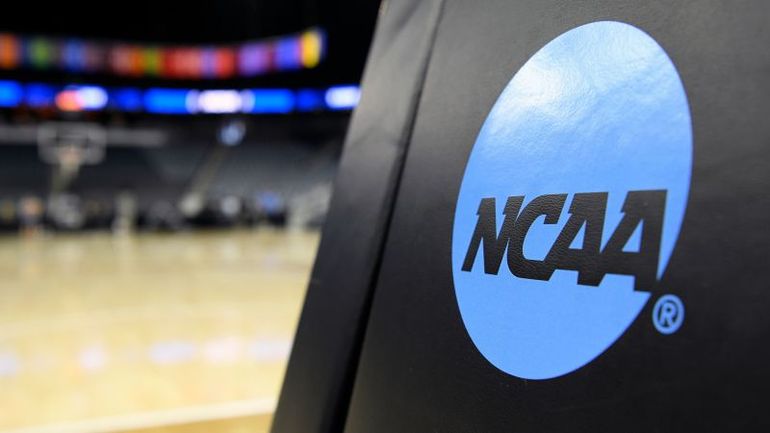
NCAA and Power Conferences Reach Agreement on Student-Athlete Compensation

The National Collegiate Athletics Association (NCAA) and the five power conferences have reached an agreement on settlement terms to enable schools to compensate student-athletes. This decision, announced by the governing body for college sports and power conference commissioners, marks a significant step towards allowing student-athletes to be paid.
The National Collegiate Athletics Association (NCAA) and the five power conferences have reached a settlement agreement to enable schools to compensate student-athletes, as announced by the governing body for college sports and the power conference commissioners on Thursday.
This agreement marks a significant moment in college athletics, where amateurism has long been the norm, leading to a shadowy world of undisclosed payments and benefits. Numerous college sports programs have faced penalties from the NCAA due to players receiving some form of compensation for their performances - ranging from under-the-table payments to star players to a coach treating a recruit to a meal.
The rise of college sports business made many question the idea of amateurism. Schools and conferences were making huge profits, while coaches promoted amateurism but then accepted high-paying job offers. TV networks also played a role in maximizing profits. Despite this, the players on the field were not being paid, even though they were driving a multibillion-dollar industry.
The House vs. NCAA lawsuit aimed to address this issue.
Grant House and Sedona Prince, two college athletes, filed a lawsuit against the NCAA and the Power 5 conferences - the Pac-12, Big Ten, Big 12, Southeastern, and Atlantic Coast. The lawsuit focused on the eight-year, $8.8 billion extension the NCAA signed for broadcasting the March Madness basketball tournament. It also sought back-dated damages for payments the suit claims were wrongly withheld.
The lawsuit pointed out that while an NCAA rule change allowed players to be paid for their name, image, and likeness through sponsorships and advertisements, it still restricts how much student athletes can earn from outside employment. For instance, one NCAA bylaw prohibits athletes from receiving any form of remuneration for the value they bring to an outside employer due to their athletic abilities and fame.
The leaders of the five conferences and the NCAA issued a joint statement expressing their hope that the settlement could be a significant step towards reforming college sports.
The statement emphasized that the settlement could serve as a guide for college sports leaders and Congress to ensure that the American institution continues to offer unparalleled opportunities for millions of students. It acknowledged the collaborative effort of all Division I members in achieving this progress and highlighted the need for further work to implement the agreement as the legal process unfolds. The leaders also expressed their eagerness to collaborate with student-athlete groups in shaping the future of college sports.
It's uncertain how the recent settlement will impact college sports immediately. However, it has been evident for a while now that a significant change was on the horizon, especially after the rule adjustment regarding NIL compensation in 2021.
This alteration in rules, along with a relaxation in transfer regulations, has resulted in players moving between schools to secure a more favorable NIL agreement. In the past, they would have been required to remain at their initial school for their full four years of eligibility or face the possibility of a one-year hiatus after transferring.
Athletes’ increasing use of the transfer portal has posed challenges in college sports, especially for student-athletes aiming to earn a degree. College boosters have exploited the varying state laws to lure top athletes with lucrative deals, putting colleges in other states at a disadvantage due to different rules they must follow.
The lack of regulation on Name, Image, and Likeness (NIL) has created a chaotic environment in college sports, likened to the Wild West. The NCAA is now looking to address this issue to bring about more order and fairness in the system.
This is a developing story and will be updated.
- CNN’s Ben Morse contributed to this report
Editor's P/S:
The NCAA's settlement agreement to enable schools to compensate student-athletes is a landmark moment in college sports. It's a long-overdue recognition that the players who generate billions of dollars in revenue deserve to be fairly compensated for their labor. The settlement also addresses the growing problem of NIL deals, which have created a chaotic and unfair environment in college sports.
The NCAA's decision to allow schools to compensate student-athletes is a victory for common sense and fairness. It's time for the NCAA to embrace the reality that college sports is a business, and that the players who make it possible deserve to be treated like professionals. The settlement is a step in the right direction, but there is still more work to be done to ensure that all student-athletes are treated fairly and have the opportunity to succeed both on and off the field.








